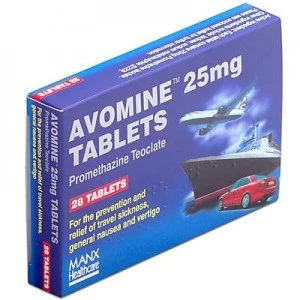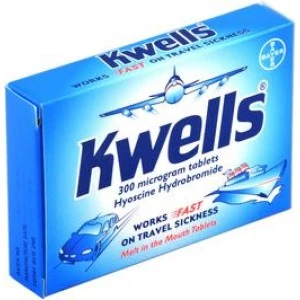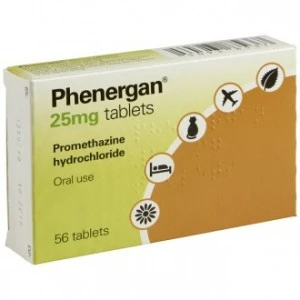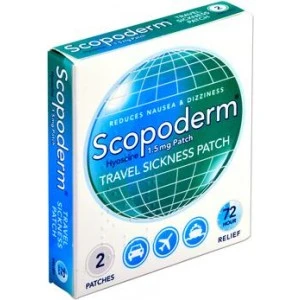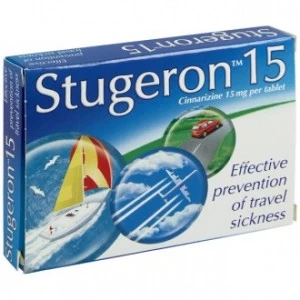Travel Sickness
Travel sickness is a common acute feeling of sickness or nausea felt when travelling. While it can be debilitating for those going on holiday, there are treatments available.
Avomine
- Blocks vomiting receptors
- Helps reduce nausea
- Sent from a registered pharmacy
Kwells
- Prevents motion sickness
- Eligible for next-day delivery
- Can be swallowed, chewed or sucked
Phenergan
- Relieves sickness
- Aids sleep
- No prescription required
Scopoderm
- Provides relief for 72 hours
- Easily applied as a patch
- Dispatched from a UK-registered pharmacy
Stugeron
- Easy to take
- Prevents motion sickness
- Available without prescription
What is travel sickness?
Travel sickness, seasickness, carsickness, airsickness, simulation sickness, and, more recently, VR sickness are all other terms for motion sickness. It is a common condition estimated to affect one-third of the population when travelling.
Motion sickness occurs when perceived motion (sense of sight) contradicts the body's physical motion (sense of balance), and vice versa. There are two main ways motion sickness can occur:
- Feeling motion but not seeing it (such as being on a boat or aeroplane)
- Seeing motion but not feeling it (such as watching a film)
The inner ear contains several fluid-filled semicircular canals, which are known as the vestibular system. When the fluid passes over small sensory hairs which line the canals, the cells bend and relay a signal to the brain that a physical motion has occurred. The brain then passes this message on to the eyes to confirm the motion.
However, if the vestibular (sense of balance) and visual (sense of sight) systems conflict, the chemoreceptor trigger zone (vomit centre) of the brain releases histamine, causing vomiting.
What are the symptoms of travel sickness?
Depending on a person's sensitivity to motion, symptoms can vary.
The symptoms of travel sickness include:
- A feeling of uneasiness while travelling
- Cold sweats
- Dizziness
- Headache
- Hyperventilation
- Fatigue
- Excessive salivation
- Low blood pressure
- Vomiting
How can you prevent travel sickness?
There are several ways to prevent travel sickness from occurring. Here are a few of the most common ones:
Change your seat.
Sit by a window so that you can perceive the direction you are travelling. Sitting in the front passenger or rear middle seat of a car can give you a clear view of the road, thereby influencing your perception of the direction you are moving. Site facing forward in the direction of movement and look towards the horizon while travelling.
Avoid screens and books.
While in a moving vehicle, avoid reading, watching films or using your phone or tablet. Consider audio-only entertainment for your journey, such as music, podcasts or audiobooks.
Eat light meals.
Avoid food which may affect your digestion. Avoid eating a large meal before travelling, as this can exacerbate symptoms. Avoid spicy, acidic and greasy food before travelling. Alcohol should also be avoided before travelling. Keep hydrated throughout your journey by drinking plenty of water.
Take regular breaks
Whether travelling or experiencing VR, taking regular breaks can prevent motion sickness.
Practise deep breathing exercises.
Taking slow, deep, controlled breaths has been shown to reduce nausea. This can also reduce the risk of hyperventilation.
Medicine
Taking medicine, such as Avomine or Kwells, before travelling reduces the risk of experiencing motion sickness.
© 2013 - 2026 Al Muhsineen Limited. All Rights Reserved. Registered Pharmacy: 34 Halliwell Road, Bolton BL1 8RL. Registered Office: 254 First Floor, Shearbrow, Blackburn, England, BB1 8DS

